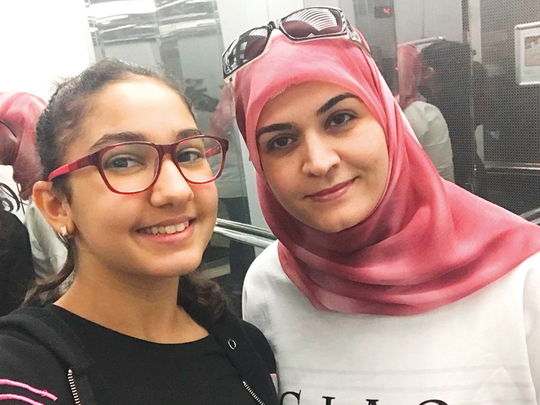
Dubai: The influence of YouTube on people, particularly the young, is an unalterable fact.
From watching their favourite music stars to learning how to do make-up to an endless line-up of things to do, learn and listen to, this medium is a modern classroom of international proportions where anyone can sign up if they have a smart gadget.
And today’s children are welded to their smart gadgets.
Given this ubiquity, the concern among parents about what kind of content their children are watching on YouTube is valid. Around the world, there are instances galore of the positive and negative impacts of YouTube upon young impressionable minds.
With the possibilities of influence thus split between the good and the bad, what does it take to make young minds stay on the right path?
When Gulf News spoke to youngsters about YouTube, many of them expressed their desire to meet their favourite YouTubers.
“I watch lots of YouTubers’ vlogs because it is always interesting to know how others are spending their lives.”
But Hassan is also aware of the envy potential of observing others’ lives that may appear to be more fun. “I have learnt to take the good and leave out the bad from [YouTube] content depending on the quality of the video posted, its convenience to me, and what I have heard about it from my friends.”
Adam Mohammad, a 16-year-old Palestinian in grade 11, and his sister, Kinda Mohammad, 10-year-old in grade 6, approach YouTube as a tool of “entertainment”, especially during weekends and holidays.
“I usually watch American YouTubers since it gives me the chance to look at what is happening on the other side of the world,” said Adam.
“I use YouTube for educational purposes as well, especially when I don’t understand a lesson, and I need further explanation about it,” he added.
Kinda has her way of sifting good and bad content on YouTube content.
“I differentiate between beneficial and non-beneficial content from the number of viewers, the name of the YouTube channel, and from the comments that people leave under the video,” she said.
“Watching English YouTube content helps me improve my English speaking skills because I learn new terms,” Kinda added.
Sana Hamouda, Adam and Kinda’s mother, a homemaker, believes YouTube nowadays has more of a negative influence on children since it “wastes their time”.
Still, she said, her children are benefiting from it.
“What I have noticed about my kids watching YouTube is an increase in their knowledge on various topics, and learning new skills of communication.
“The only way is to keep them aware of its disadvantages and advise them. You can’t completely deprive your children of watching YouTube.”
When she sees them stuck on YouTube for too long, she urges them to step out of the house and get some fresh air. “I try to get them do physical activities, like riding the bicycle or going to the gym,” Hamouda said.
For others like Juman Amr, 13-year-old Jordanian, watching YouTube is a way to boost her mood when she is bored of studying.
“I always wonder how these YouTubers were able to reach this level of fame and become role models to kids and teenagers,” Amr said.
Lujyne Amr, Juman’s sister, has a way of disengaging Juman from too much YouTubing.
“We allow her certain hours to use her phone,” Lujyne said.
Amal Hussain, Juman’s mother, understands the importance of monitoring the content her daughter watches.
“She is still young and can’t fully differentiate between good and bad content, especially if she watches what others watch, without being aware of its impact.”
“Juman has become more knowledgeable about new countries, new places, and topics that we, her parents, have never heard about,” she added.
A YouTuber’s advice
Dalati believes that nowadays youngsters tend to look for “entertaining” YouTube content because they want to offset the stress of studies.
“In my vlogs, I try to always have a beneficial message for kids which would also keep their parents assured about what their children are watching.
“I believe that YouTube is a world by itself that is making kids much more aware and educated than previous generations,” Dalati added.
Dalati offered her advice on what young people should be watching — and avoiding: “Youngsters should watch more sociological and psychological content because it is part of our being, and would help them understand what happens around them. They should avoid content that doesn’t draw a smile on their face, or doesn’t add value to their personality,” she said.
— Falak Kassab is an intern with Gulf News








